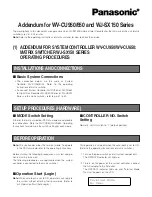
Command Manual – AAA&RADIUS&HWTACACS
H3C S3610&S5510 Series Ethernet Switches
Chapter 1 AAA & RADIUS & HWTACACS
Configuration Commands
1-19
1.1.17 display local-user
Syntax
display local-user
[
domain
isp-name
|
idle-cut
{
disable
|
enable
} |
vlan
vlan-id
|
service-type
{
lan-access
|
telnet
|
ssh
|
terminal
|
ftp
} |
state
{
active
|
block
} |
user-name
user-name
]
View
Any view
Parameter
domain
isp-name
: Displays all local users belonging to the specified ISP domain.
Where,
isp-name
is the name of an ISP domain, a character string of up to 24
characters. You can only specify an existing ISP domain.
idle-cut
{
disable
|
enable
}: Displays the local users who are inhibited from enabling
the idle-cut function, or the local users who are allowed to enable the idle-cut function.
Where,
disable
specifies the inhibited local users and
enable
specifies the allowed
local users.
vlan
vlan-id
: Displays the local users belonging to the specified VLAN. Where,
vlan-id
ranges from 1 to 4094.
service-type
: Displays the local users of the specified type. You can specify one of the
following user types:
lan-access
(generally, this type of users are Ethernet access
users, for example, 802.1x users),
telnet
(for Telnet users),
ssh
(for SSH users),
terminal
(this type of users are terminal users who log into the switch through the
Console port), and
ftp
for FTP users.
state
{
active
|
block
}: Displays the local users in the specified state. Where
active
represents the users allowed to request network services, and
block
represents the
users inhibited to request network services.
user-name
user-name
: Displays the local user who has the specified user name.
Where,
user-name
is a character string of up to 80 characters. The string cannot
contain the following characters: /:*?<>. It can contain no more than one @ character.
The pure user name (user ID, that is, the part before @) cannot be longer than 55
characters.
Description
Use the
display local-user
command to display information about specified or all local
users.
Related command:
local-user
.
Example
# Display information about all local users.
















































